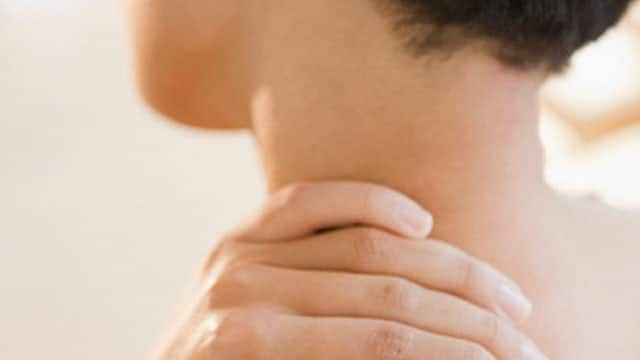When your neck and/or head is receiving the radiation treatment it needs to fight cancer; your mouth could be indirectly affected by the radiation. And sometimes that could push pause on your cancer treatment — not good. So you do need to be mindful of any possible side effects. You should also integrate your dental team with your cancer care team to keep your mouth healthy before treatment begins and to arm yourself with the knowledge needed if any oral health problems arise.

Head And Neck Radiation Treatment & Your Mouth
Medically Reviewed By Colgate Global Scientific Communications
How Does Head And Neck Radiation Affect Your Mouth?
The head and neck radiation should be doing its job and destroying the cancer cells. Sometimes, the radiation can also impact healthy normal cells in your mouth, creating various side effects. There's no rhyme or reason on which side effect touches which patient or for how long. Fortunately, you should be able to see or feel them in your mouth and treat them as necessary. The most common sides effects created from the radiation are:
- Difficulty speaking, eating, swallowing
- Dry mouth
- Cavities
- Loss of taste
- Sore mouth and gums
- Infections throughout the mouth
- Jaw stiffness
- Jawbone changes
It's crucial that you address any of these that affect you so your cancer treatment can continue as needed.
Why And When You Should See A Dentist?
The side effects from your head and neck radiation are a real possibility. But seeing your oral care providers before radiation treatment begins can only help minimize them should they happen. If your oral health is in tip-top shape, the better your chances to stick to your cancer treatment as scheduled. Visit with your dentist at least two weeks before radiation treatment and connect them with your cancer care team, so they're all on the same treatment wavelength. Your dental team will:
- Provide a thorough oral exam of your mouth and teeth
- Take X-rays
- Address any other mouth problems
- Show and instruct how to treat and prevent any side effects from radiation
- Show and advise how to avoid jaw stiffness by exercising the jaw muscles three times a day with 20 reps of opening and closing your mouth as far as possible
What Can You Do To Keep Your Mouth Healthy?
The first step in keeping your mouth healthy is to — watch your mouth. Look for any noticeable changes visually and try to be aware of pain or discomfort internally. While there is no toothpaste for radiation, you should consider the following tips to keep your overall oral health in good shape.
- Prevent dry mouth:
- Stay hydrated with water and ice chips
- Opt for sugarless gum or candy
- Try a saliva substitute to moisten your mouth
- Clean your entire mouth:
- Brush your teeth (with a fluoride toothpaste) and tongue after every meal and before bedtime with an extra-soft toothbrush (soften bristles under warm water as necessary)
- Remove plaque between your teeth using interdental brushes, water flossers, or floss being careful not to irritate or cut your gums.
- Mix 1/4 tsp of baking soda and 1/8 tsp of salt with 1 cup of warm, then rinse and follow with a plain water rinse
- Check with your doctor or dentist about ill-fitting dentures
- Mind what you eat and drink:
- Eat foods that are nutritious and easy to swallow with slow bites and sipping liquids while chewing
- Choose softer foods like scrambled eggs, mashed potatoes, etc. — and add a sauce, gravy, or liquid for help with swallowing
- Try to avoid sharp, hard, crunchy foods, hot, spicy, highly acidic foods, overly sugary foods like candy and soda, all tobacco products, and alcoholic beverages
- Contact your team when there's pain:
- Take their prescribed pain relief medications as directed
- Request stronger medicine if the pain persists
Can Children Get Mouth Problems As Well?
It's possible that if your child is undergoing head or neck radiation, that they could also endure some of the same side effects listed above. Teeth issues are the most prevalent as kids are still losing and growing teeth. Radiation could cause the teeth to fall out, come in slower, and look abnormal. Take your child into your dentist before radiation so they can:
- Perform a comprehensive oral exam
- Pull any teeth that could loosen during treatment
- Provide similar tips to keeping your child's mouth healthy throughout treatment
There's no denying the side effects that radiation could cause you, but if it can crush your cancer, it's worth it. So remember to see your dental professionals before treatment begins, connect them with your cancer care team, follow their advice on keeping your mouth healthy. The rest of your health care team is watching your back.
This article is intended to promote understanding of and knowledge about general oral health topics. It is not intended to be a substitute for professional advice, diagnosis or treatment. Always seek the advice of your dentist or other qualified healthcare provider with any questions you may have regarding a medical condition or treatment.







